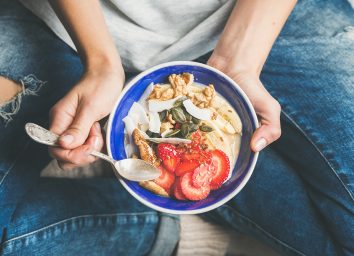The Unhealthiest Eating Habits For Your Immune System
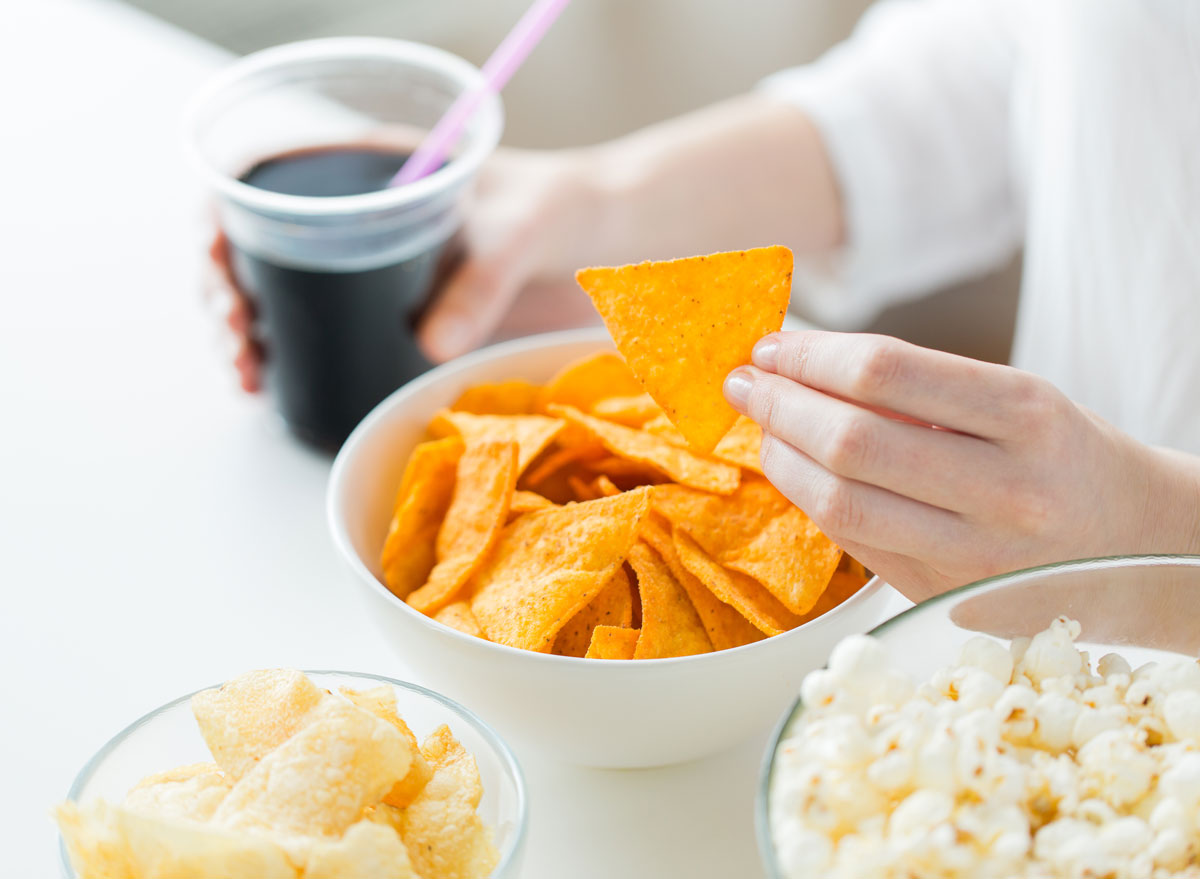
Living through this time of mass uncertainty that is a pandemic, it's easy to fall into unhealthy habits, especially when it comes to eating. After all, you're spending more time at home a lot more than you ever have before, so it's easy to turn to comfort food while you stay put on the couch binging another TV show. While this is totally OK to do, you still want to try and make the healthiest choices you possibly can when it comes to your eating habits in order to keep your immune system in the best shape possible.
We spoke to registered dietitians to find out what exactly are the unhealthiest eating habits that could wreak havoc on your immune system.
Forgetting the fresh fruits and vegetables.
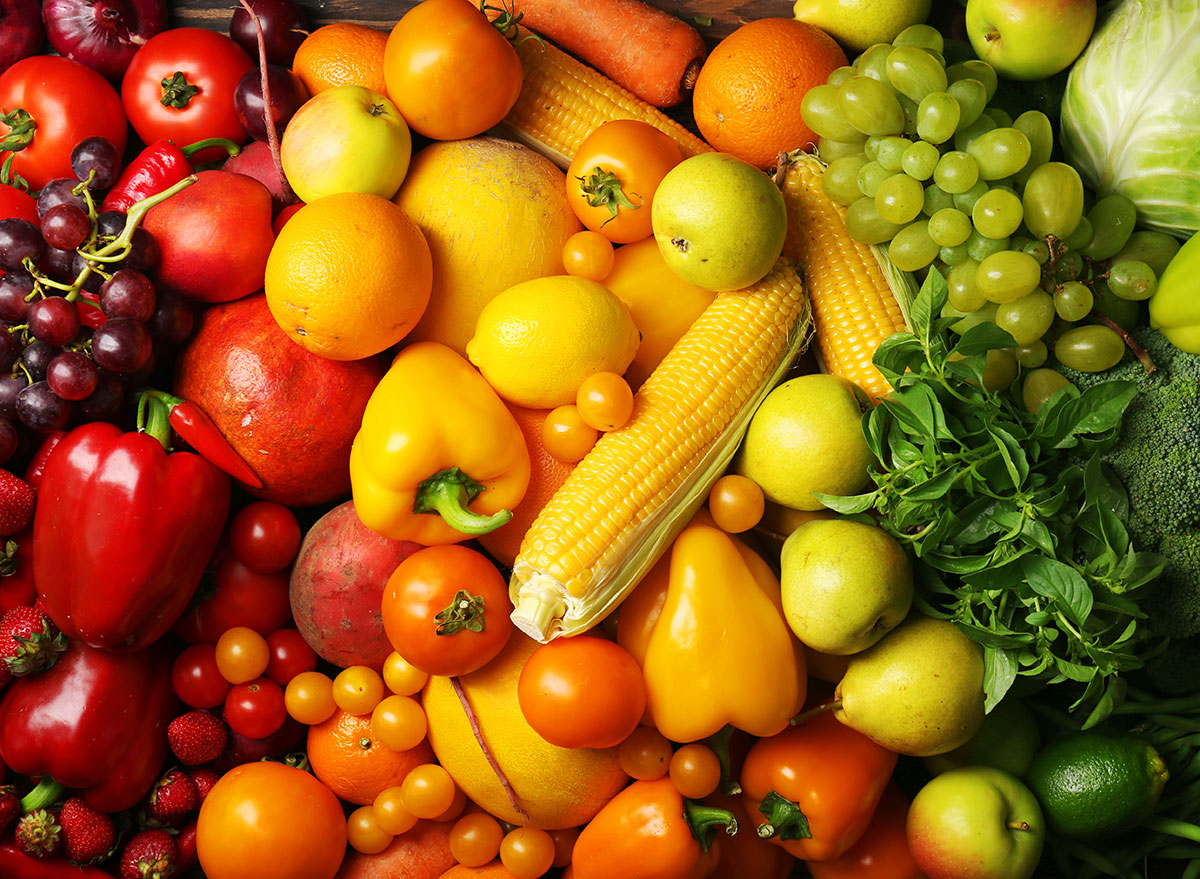
Trips to the grocery store might be happening less often, but you should still want to grab some fresh produce if you can.
"Although canned and frozen fruits and vegetables are absolutely healthy, many people have been afraid to eat fresh produce. With 1 in 10 Americans not meeting the recommended daily amount of produce, all forms should be consumed. COVID-19 is not a foodborne illness and there are no cases that have been transmitted through food," says Toby Amidor, MS, RD, CDN, FAND award-winning nutrition expert and Wall Street Journal best-selling cookbook author of The Create-Your-Plate Diabetes Cookbook.
There are plenty of ways to jazz up vegetables you've stocked up on so your meals won't ever get boring.
"I know groceries might be sparse right now, but I can bet your supermarket or box store has at least a handful of veggie options for you to purchase. As usual, all forms of vegetables count—fresh, canned, or frozen—so make sure they are on your order list. To liven them up, add flavorful sauces, steam frozen veggies then saute to turn them crispy, or blanch and preserve some fresh ones even, says Casey Seiden, MS, RD, CDN, DCES.
Mindlessly snacking.
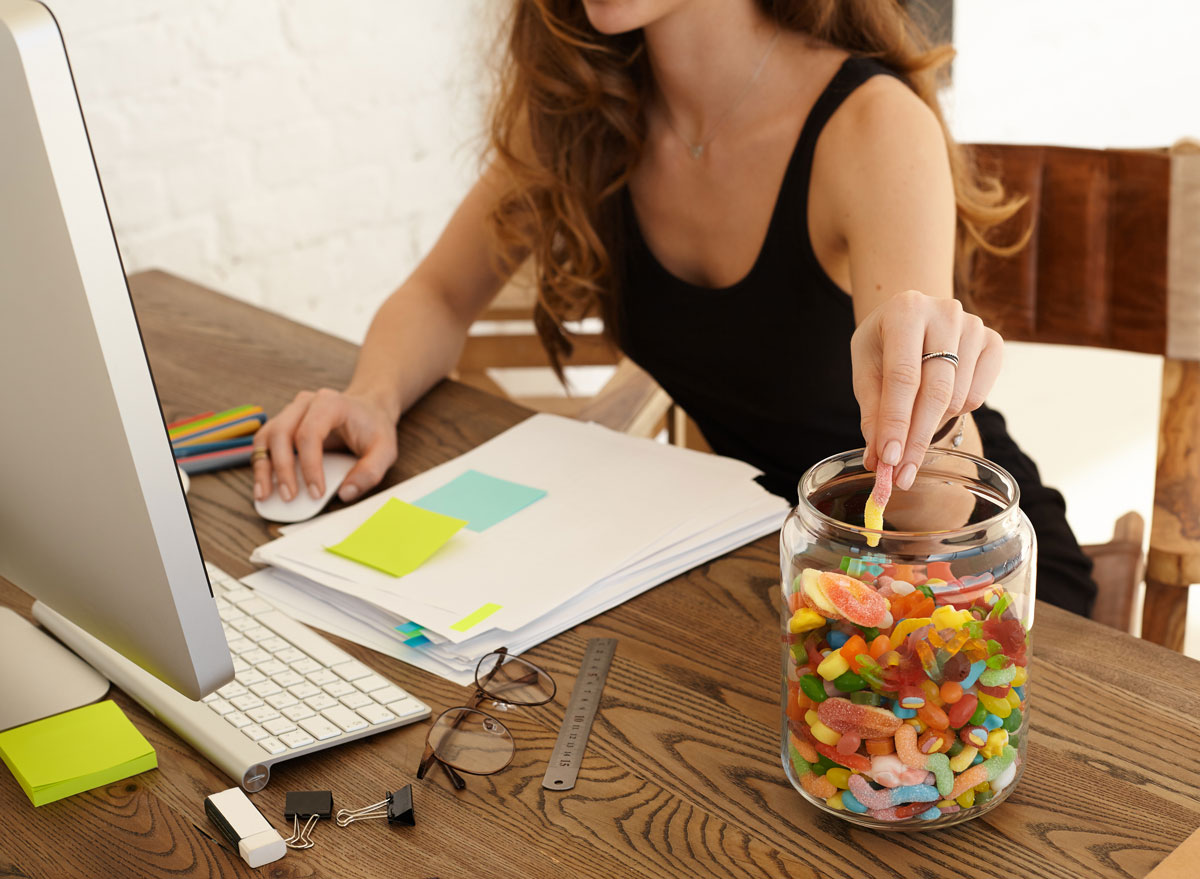
Finding yourself munching on snacks? This is something many people are struggling with that you're going to want to actively try and avoid.
"When you're stuck in your house all day, you may find yourself grabbing bites and handfuls of snacks in your pantry. This can lead to unhealthy eating habits, overeating, and weight gain," says Amidor.
Seiden agrees and explains that if you really are actually hungry quite often, which is leading you to snacking, your meals might just need a bit of a makeover.
"When we are grazing every hour or so, the body doesn't quite get the chance to settle down in between eating occasions, which can be a lot for your blood sugars and other hormone levels," she says. "Constant snacking also leads me to suspect that your meals are lacking in some fiber, protein, or fat to keep you feeling fuller for longer. Instead, try to focus on having three balanced meals and two to three snacks per day."
And if possible, you'll want to make sure the one place housing all the snacks isn't in your line of sight. Yes, we're talking about the kitchen.
"Sit not facing the kitchen, or in another room if possible (out of sight, out of mind). Have a set time for your snacks, [too]," says Rachel Paul, PhD, RD from CollegeNutritionist.com.
Ignoring hunger cues.
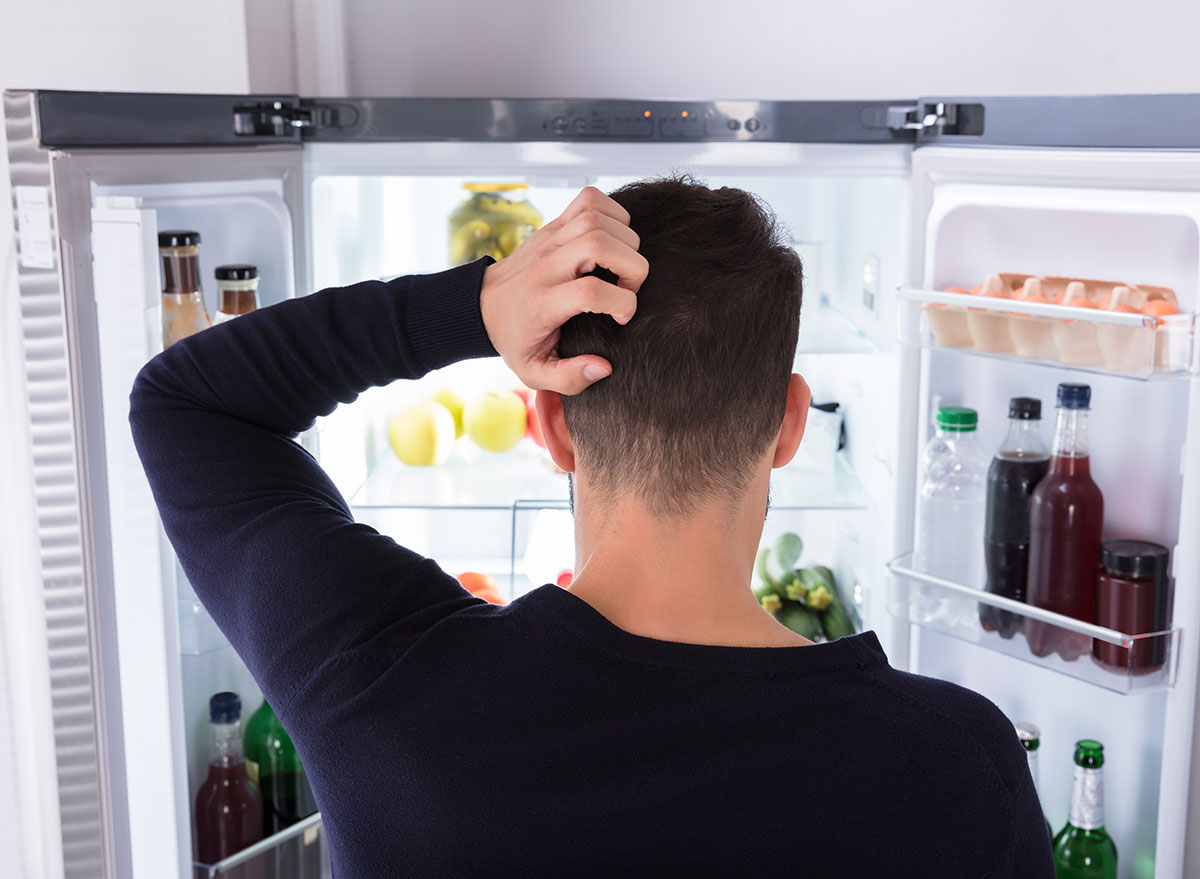
Find yourself eating just because it gives you something to do? Sorry, but that's one activity you're going to want to cut back on and instead, focus on listening to your body telling you when it's time to eat.
"Things in your world are likely totally out of whack, but one thing you can always come back to is trying to tune into your own hunger and fullness cues. When you might be less busy with work and battling boredom it's easy to turn to food as an activity when you really aren't even hungry," says Seiden. "What I recommend is hitting 'pause' when reaching for the snacks and assessing if food is what you truly need right now, or if reading a book or painting your nails would satisfy you instead."
So what can do you when you feel like grabbing a snack when you know you're not actually hungry? Paul suggests, you "create a list of at least 10 fun things you can do instead of eating when you're not hungry" so that way you're doing something you enjoy, which will take your mind off food.
And if you're looking for more healthy food inspiration, be sure to sign up for our newsletter to get daily recipes and food news in your inbox!
Emotionally eating.
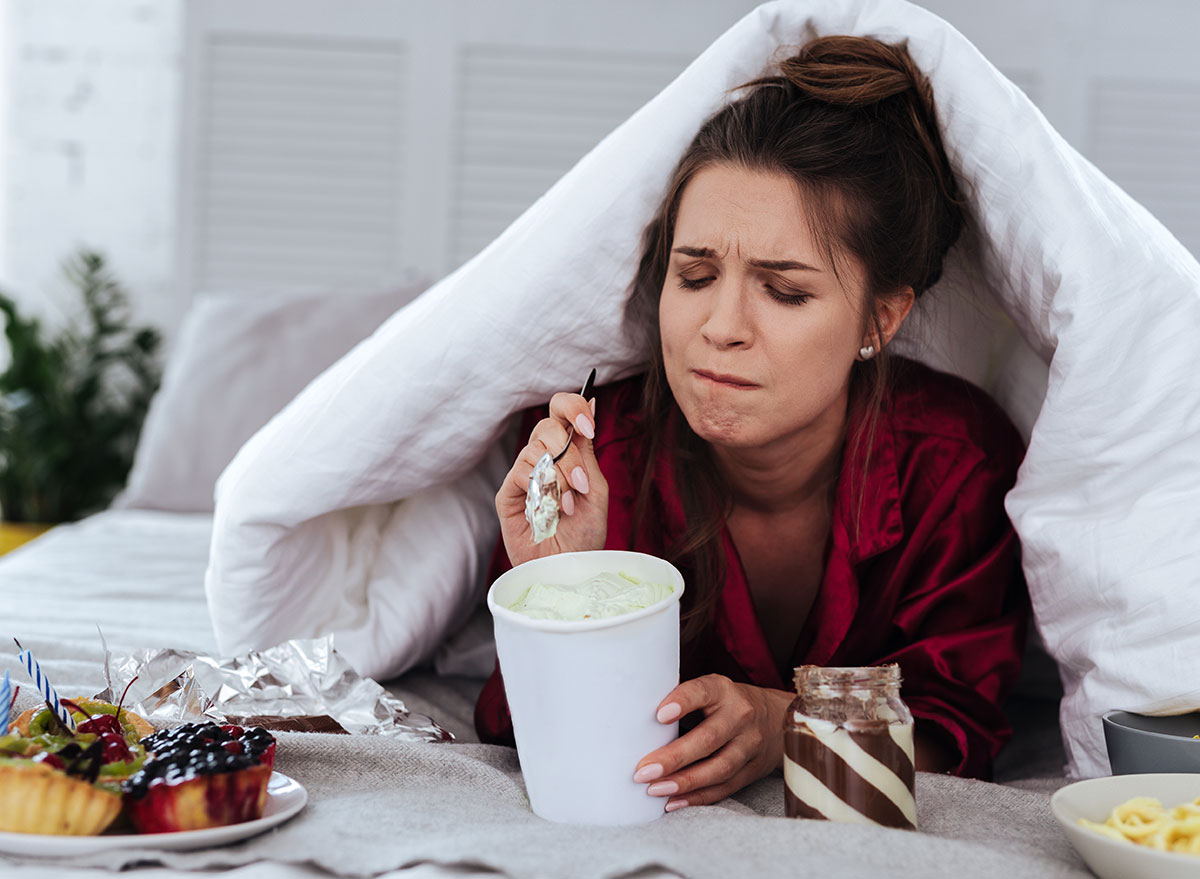
"People are bored, restless, anxious, or scared (or have other emotions) which can lead to emotional eating, even when you're not hungry and overeating," says Amidor.
So how can you best keep your emotions in check before they wreck your eating habits? Amidor suggests using "a hunger scale to check if you are truly hungry. The scale should be from 0-10 (10 being very hungry) to gauge how hungry you truly are. If it is less than 5 or 6, and you find yourself looking for food because of emotions then find another outlet" to best channel and process how you're feeling.
Not having a set start and stop time for work.

If you're lucky enough to still be working from home during this pandemic, you're going to want to keep things as normal as possible.
"Without the commute of going to and from work, it's easy to let work start as soon as you get up, and continue just before you go to bed," Paul says. "Have a set schedule of work hours—you'll be more productive."
And you won't fall victim to eating snacks in front of your computer as you work into the night instead of logging off at a decent time so you can cook yourself a solid meal.
Not having set meal times.
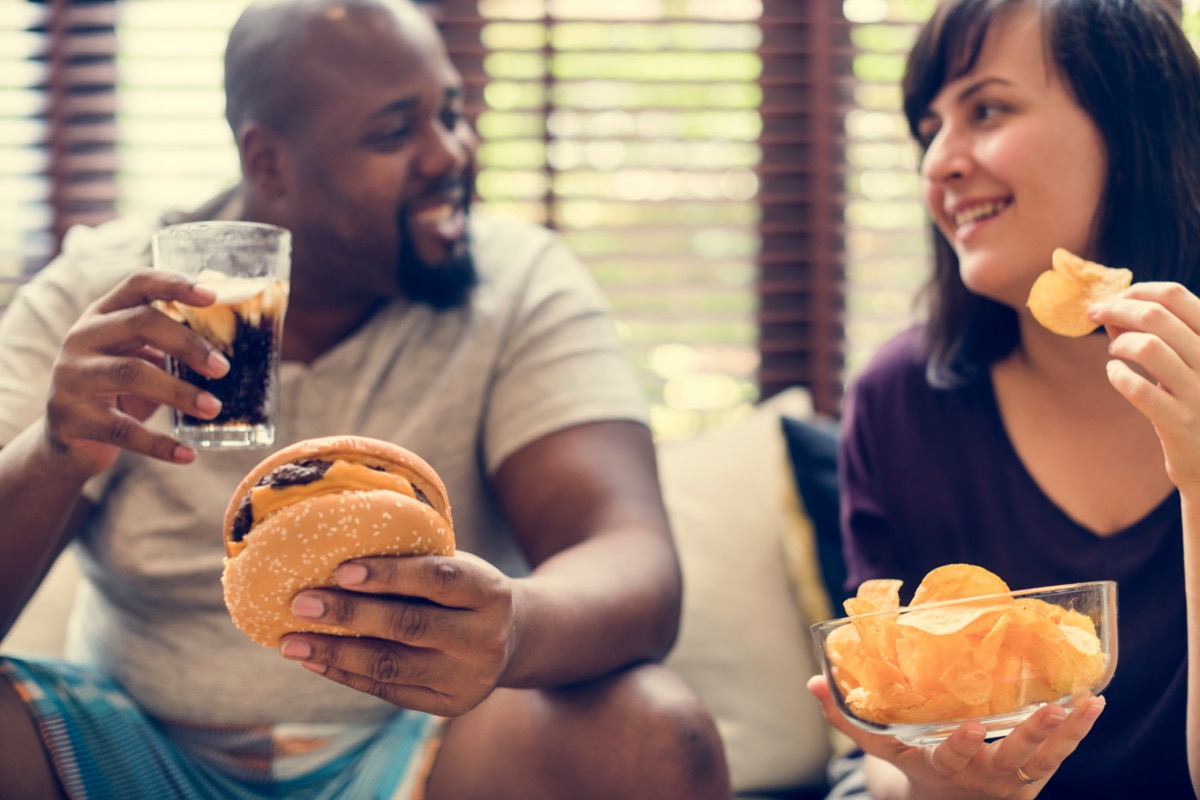
Paul says that "to help further with your daily schedule, [it's best to] create a time for breakfast, lunch, snack, and dinner." This, along with "avoid[ing] the kitchen [and] pantry other times of the day" that are outside your schedule, according to Amidor, will best help you avoid overeating.
Not drinking enough.

It's always important to drink plenty of water, but this is especially true when you're living the quarantine life.
"We can feel a lot more sluggish, hungry, and irritable when we aren't adequately hydrated," says Seiden. "Starting the day with a coffee is great, but try to schedule in a glass of water every 2-3 hours to ensure you're meeting your hydration needs." And here's exactly how to make sure you're drinking enough water while you're stuck at home.
Sitting for too long.
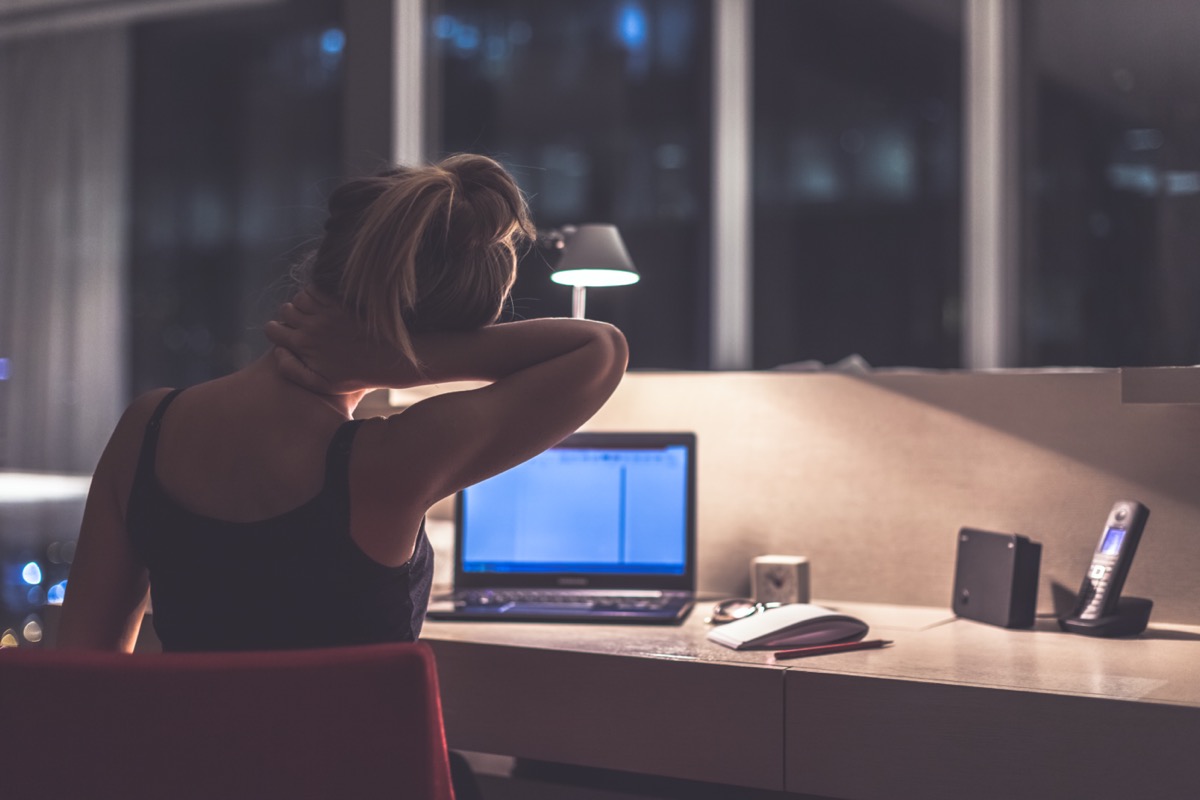
Again, everyone is spending more time inside, so it's natural you're not getting as much physical activity as you typically would. But you want to avoid sitting for too long. So how can you best combat this?
"Stand at a kitchen counter, use a stability ball as a chair (to work your core), [or even] find a walking video on YouTube to get a few thousand steps in (in 15 minutes!)," Paul suggests.
Giving up on all healthy foods.

Turning to comfort foods during times of high stress is understandable, but you don't want to completely abandon healthy eating habits and eating foods that are genuinely good for you.
"Eating your boxed favorites like mac and cheese is OK, but giving up on all eating habits will not keep your body in tip-top shape to fight off any illness," says Amidor. "Opt for your favorite unhealthy packaged or comfort foods, but complement it with healthy foods like fruits, vegetables, whole grains, and other healthy foods. Healthy eating is possible."
Hoarding food.
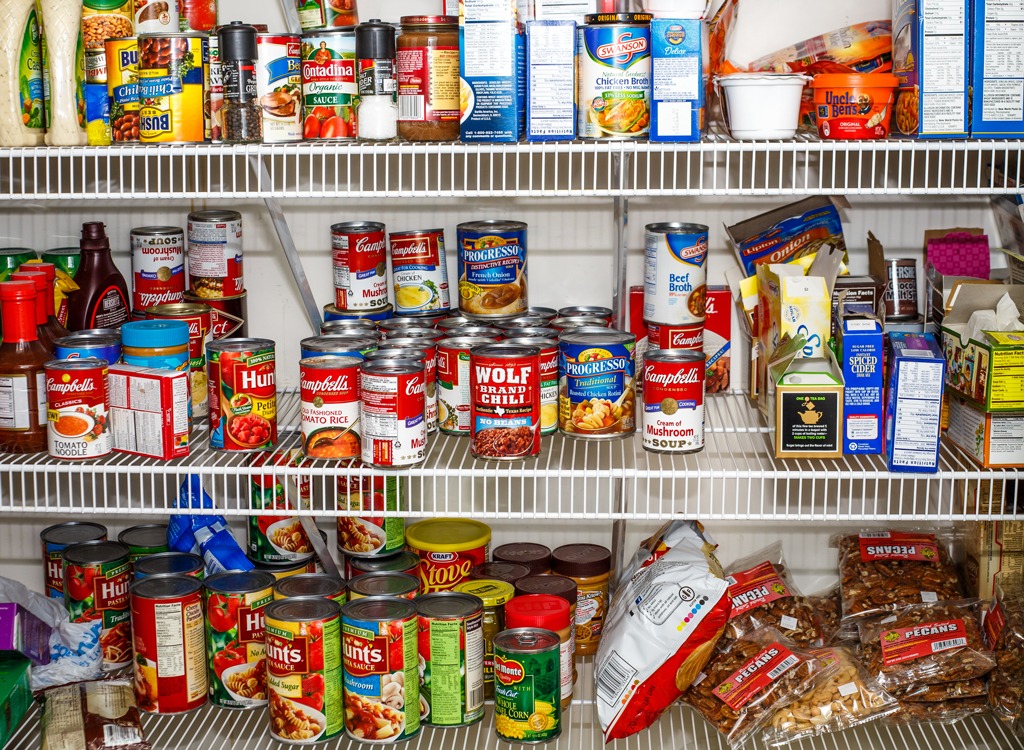
Although as Amidor points out, "it is recommended to stash up on food for two weeks in order to minimize trips to the market" as a way to "minimize contact with others (including food shopping) as this will minimize the risk of contracting the virus," even months into living during a pandemic. But you want to make sure you don't ever feel the need to buy out everything in the store. Can you really eat every banana you see in the store that quickly anyway?
"People are stocking up on food as they are scared they won't be able to get their hands on any. However, the food supply is safe and there is plenty of food available," Amidor says.

